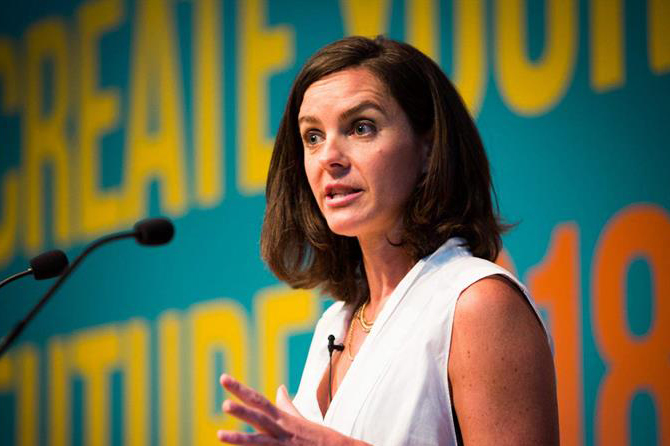
New chief executive Alex Mahon, presenting the annual report that showed sales house 4Sales' revenues fell 3% or £37m to a three-year low of £1.17bn last year, urged the Government to carry out "a full, fact-based consultation" about HFSS foods and the role of advertising.
Jonathan Allan, the chief commercial officer, admitted an HFSS ban could be potentially serious with a £200m impact across the TV ad market.
"The fear is if there’s only TV regulation, that money just goes elsewhere – onto YouTube and Facebook. It doesn’t actually solve the problem," Allan said. "It’s a serious financial risk for broadcasters."
He added the pre-9pm watershed is "not proportionate" because it would hit shows such as Countdown, which draws in relatively few young viewers.
Meanwhile, Mahon called for a "careful, thoughtful and holistic conversation" with government amid reports that Jeremy Hunt, the Health Secretary, is intent on pushing through a pre-9pm TV ad ban, despite strong resistance from parts of the UK media industry.
Mahon also said she and other public service broadcasting chiefs, including the BBC's Lord Hall, would be pressing the government to protect the prominent role of PSBs on online platforms – in the same way that the channels get a protected spot at the top of the traditional, electronic programme guide on broadcast TV.
She it was important to support PSBs to ensure British "voices" are heard.
All UK broadcasters "need to be concerned" about platforms such as Netflix and YouTube because they have "very deep pockets" but don’t have the same British "distinctiveness".
She said: "British public service broadcasters are facing significant competition from unregulated global players who are competing hard for that ad revenue and for those viewers.
"They all have on-going issues with brand safety and with data and with measurement," she added.
Mahon was "optimistic" about the ad outlook for 2018, saying revenues should be "marginally" up in the first six months, and Channel 4 has struck a partnership with youth-orienated Vice Media to put 900 hours of its video content on online platform All4.
She maintained Channel 4 was "in a very strong place" despite net cash reserves at the end of 2017 falling below £200m for the first time in at least five years.
The state-owned broadcaster had a "planned" annual deficit of £17m as revenues, chiefly from advertising, did not offset programming and other costs.
Total content spend fell 3% to £675m last year.
Mahon will "look closely" at programme spend in 2018 but pointed out the broadcaster could draw on its cash reserves.
Channel 4 has agreed a £75m bank loan facility to protect against future uncertainty.
Sales house 4 Sales, which sells air-time and sponsorship for UKTV and BT Sport, reported revenues of just under £1.17bn against £1.2bn in 2016, just over £1.17bn in 2015 and £1.07bn in 2014.
Share of commercial impacts for the Channel 4 portfolio of channels dropped slightly to 15.4% while ITV, Sky and Channel 5 all increased their share last year, according to figures from Mediaocean in the annual report.
Online views rose to 719m on All 4 from 620m in 2016.
Mahon said she was keen for Channel 4 and other broadcasters to look at audience metrics that combine linear and online viewing.
"It's clear we need to rapidly accelerate what we do digitally," she said.
Mahon joined in October 2017 and is on a basic salary of £569,250.
Allan has got a salary rise to £425,000 since being promoted to chief commercial officer, which includes overseeing Channel 4’s planned expansion of its offices in the nations and regions, in April 2018.
His total pay dropped to £524,000 in 2017 from £564,000 in 2016 as his bonus fell to £118,000 from £182,000 because of the weaker ad sales performance, which was in line with the wider TV ad market.




.jpg)
.jpeg)
